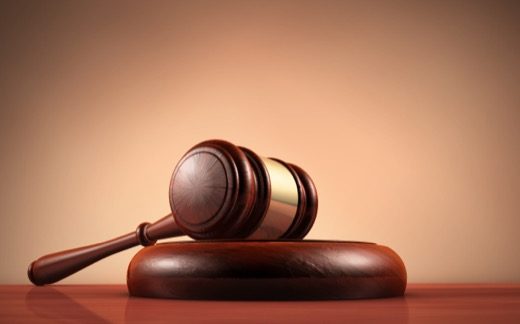Injury Case Damages and Structured Settlements in Florida
When you’ve been injured in an accident your focus is on getting the best medical care and recovering. But as the medical bills mount and your injuries have prevented you from returning to work so your income has dwindled, you have to start thinking about your legal options for having the person or business responsible for your injuries to help pay the costs of you care and the wages you’ve lost.
In Florida, when someone’s negligent actions have resulted in injury to you and loss of property, you are entitled to damages. Damages are monetary awards granted by the judge or jury in a civil lawsuit to recompense a person for pain suffered, medical expenses, and harm done to property.
You can recover for any bodily injury you sustain and any resulting pain and suffering, disability or physical impairment, disfigurement, mental anguish, inconvenience, or loss of capacity for the enjoyment of life you experienced in the past or may experience going forward. The types of damages you may be awarded can be for economic and noneconomic losses.
Economic
Past and future lost income: Earnings, any working time lost in the past and any loss of ability to earn money in the future
Past and future medical expenses: The reasonable value or expense of past and future hospitalization and medical and nursing care and treatment
Replacement value of lost personal property: The difference between the value of the property immediately before the incident and its value immediately after; the reasonable cost of repair, if repairable, with allowance for any difference between its value immediately before the incident and its value after repair
Funeral expenses
Non-economic
Pain and suffering: The pain of actual physical injuries, including effects likely to be suffered in the future
Mental anguish: Mental pain and suffering from being physically injured, including anguish, emotional distress, fear, anger, humiliation, anxiety, and shock
Punitive
Punitive damage can be awarded in addition to economic and noneconomic damages. Punitive damages are meant to compensate the injured party beyond his or her losses and punish the defendant for offending societal and individual norms and expectations. In Florida, two common situations where punitive damages may be awarded are drunk driver cases and when a driver was on a cell phone at the time of the accident.
Structured Settlements
If the severity of your injuries is permanent and catastrophic, your damages could be considerable, amounting to several millions of dollars. In such a case, you may choose to negotiate a structured settlement with the person who injured you or the insurance company.
A structured settlement is an arrangement where you agree to resolve your personal injury lawsuit by receiving periodic payments on an agreed schedule and not a lump sum payment. Both parties to the suit must agree on the terms of settlement.
Structured settlements are widely applied in product liability or injury cases. The settlements are usually funded by investment in an insurance policy or other annuity, which pays you a monthly amount over the course of your life. Such settlements are favored because they can reduce legal costs by having the parties avoid trial, and the IRS has ruled that settlement amounts are exempt from federal income taxes.
Selling a Structured Settlement
Another attractive aspect of a structured settlement is that you can sell, or transfer, all or part of the settlement to third parties.
Selling a settlement can incur surrender charges as high as 10 percent, and depending on your age at the time of the transfer, you could face federal taxes and penalties—undoing the benefit of lifetime tax-free income.
In 2016 the Florida state legislature made changes to laws governing the transfer of the right to receive payments under a structured settlement agreement. Essentially, the law requires that:
The seller reside in Florida
A Florida court judge approve the transfer
The transfer is determined to be in the best interests of the recipient
Further, the law requires that at least the recipient of the settlement be given a written disclosure agreement at least 10 days before the transfer and meeting these criteria:
Be written in bold type, no smaller than 14 points in size
State the amounts and due dates of the structured settlement payments to be transferred
State the total amount of the payments
State the rate by which the payments are discounted and the value of the payments after the discount
State the total amount the recipient will receive in exchange for the payments
Include a list itemizing the all the broker fees, including commissions, service charges, application fees, processing fees, closing costs, filing fees, referral fees, administrative fees, legal fees, and notary fees
State the amount payable to the recipient after all the commissions, fees, costs, expenses, and charges are deducted
Include a statement in the specific language provided in the statute that notifies the recipient that he or she is in effect paying interest and expressly sets out the annual interest rate
State the amount of any penalty and damages should the recipient breach the transfer agreement
In Your Best Interests
In deciding whether the transfer is in your best interests, the court may want to know whether:
You are confident that you got the best deal
You understand that you are selling at a discount
You have any ongoing medical or physical needs, and if so, how will those needs be met if you sell some or all of your payments
You understand the disclosure agreement
You have reviewed the disclosure agreement with a professional such as your attorney
Get Legal Advice
If you are considering selling your structured settlement, speak with an attorney at Madalon Law to ensure you are getting the best deal and the disclosure agreement complies with the law and your financial interests are protected. Call today for a free consultation. The attorneys at Madalon Law know how to put forward the best case for you. We are based in Fort Lauderdale and serve clients throughout Florida. Let Madalon Law fight for you.















